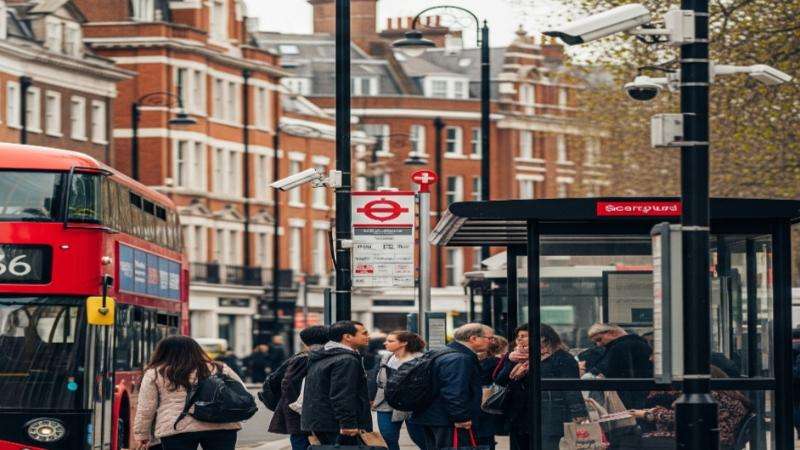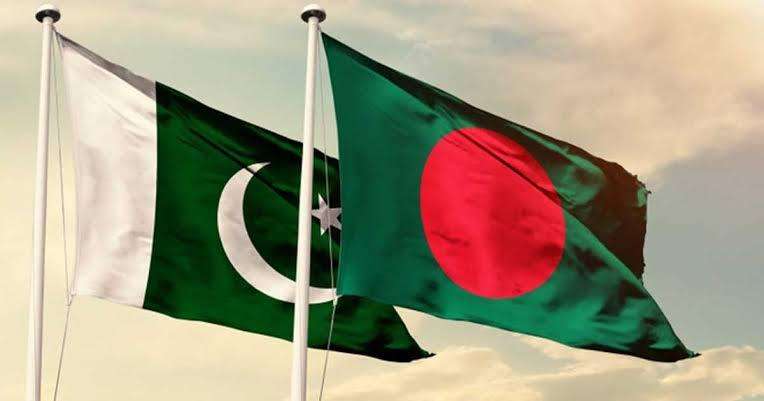Bangladesh-Pakistan relations that suffered heavily during the last 15 years are likely to improve in the coming days as the new interim government, headed by Nobel laureate Professor Dr. Muhammad Yunus, has pledged to maintain friendly relations with every county in the world.
The head of the interim government Nobel laureate Professor Dr. Muhammad Yunus said different countries and the United Nations have already extended their full support for the present interim government.
"We will maintain friendly relations with all countries. Mutual trust, believe and cooperation will be the base of our foreign policy. We are respectful to all international laws, including human rights one. We have taken steps to become signatory to the international convention on enforced disappearances," said Nobel laureate Professor Dr. Muhammad Yunus while addressing the nation on Thursday evening.
Meanwhile, Nobel laureate Professor Dr. Muhammad Yunus was sworn-in as the chief advisor of the interim government August 8, 2024. President of Bangladesh Mohammed Shahabuddin administered the oath at the Durbar Hall of the Bangabhaban in the city.
Meanwhile, Sheikh Hasina, the brutal dictator and the long-term Prime Minister of Bangladesh, who ruled Bangladesh 15 years plus under her iron hands, did everything to maintain distance relations with Pakistan at the prescription of big neighboring country, said a number of Bangladesh diplomats and South Asian diplomats while talking to this correspondent.
Though Sheikh Hasina came to power in 2009 through a participatory election held in December 29, 2008, she later hanged on to the power until August 5, 2024 through controversial, disputed, unilateral and boycotted parliament elections held in 2014, 2018 and 2024….
Sheikh Hasina who unlawfully remained in power during 2014-2024 with some civil and military bureaucrats coincidentally and intentionally took steps to harm relation with Pakistan, said some Bangladesh and South Asian diplomats.
The Bharatiya Janata Party (BJP) won a landslide victory in 2014 parliament election beating the rival and longest Indian Congress. Since 2014, Indian Prime Minister Narendra Modi has been using the religion as ‘trump card’ against rival Pakistan to gain politically in the Indian soil. Against this backdrop, Bangladesh had maintained distant relation during Sheikh Hasina’s rule, said senior Bangladesh and South Asian diplomats.
Since 2014, it has been the ruling political party in India under the incumbent Prime Minister Narendra Modi. The BJP is aligned with right-wing politics and has close ideological and organisational links to the Rashtriya Swayamsevak Sangh (RSS), a far-right paramilitary organization.
Meanwhile, the relations Bangladesh with Pakistan reached a historic law during the last 10 years as the Bharatiya Janata Party (BJP) came to the power in 2014.
The Awami League government, headed by Sheikh Hasina, tilted towards the Modi government to strengthen her position as the Bangladesh Awami League came to power through non-participatory parliament election in 2014 and 2024, and the controversial and manipulated election in 2018. The popularity of Bangladesh Awami League was never tested the parliament elections held in 2014, 2018 and 2024.
The Bharatiya Janata Party is a political party in India and one of the two major Indian political parties alongside the Indian National Congress. Since 2014, it has been the ruling political party in India under the incumbent Prime Minister Narendra Modi.
The killing of three million Bangladeshis by the Pakistan military during the liberation war in 1971, mistrust, lack of commitment and overdependence on India stand in the way of improving the relations, said a professor of the Dhaka University.
Despite two devastating world wars during 1914-18 and 1939-1945, the countries in the European Union are now most integrated nowadays.
Pakistan never condemned the killing of three million people in 1971 and has not given proper compensation to Bangladesh.
The integration in South Asia is less compared to Association of South East Asian Nation (ASEAN, European Union (EU), Gulf Gulf Cooperation Council (GCC).
Bangladesh, India, Pakistan, Nepal, Sri Lanka, Bhutan and the Maldives are members of the South Asian countries. The current population of Southern Asia is 2,051,448,881 as of Wednesday, August 7, 2024, based on the latest United Nations estimates. Southern Asia population is equivalent to 25.2% of the total world population. Southern Asia ranks number 1 in Asia among subregions ranked by Population.
The Gulf Cooperation Council (GCC) brings together six Arab countries – Bahrain, Kuwait, Oman, Qatar, Saudi Arabia, and the United Arab Emirates – to further political and economic integration amongst them.
These countries -- Brunei Darussalam, Burma, Cambodia, Indonesia, Laos, Malaysia, Philippines, Singapore, Thailand, and Vietnam -- collectively the United States' fourth-largest trading partner and together represent a market with a GDP of more than $2.9 trillion and a population of 647 million people.
The EU countries are: Austria, Belgium, Bulgaria, Croatia, Republic of Cyprus, Czech Republic, Denmark, Estonia, Finland, France, Germany, Greece, Hungary, Ireland, Italy, Latvia, Lithuania, Luxembourg, Malta, Netherlands, Poland, Portugal, Romania, Slovakia, Slovenia, Spain and Sweden.
According to sources the young population of both countries, born after 1971, can contribute to the developing relations.
Bangabanhdu Sheikh Mujibur Rahman took part in the OIC meeting in 1974 in Lahore to improve relations with OIC member countries despite opposition of a neighboring country.
Bangabanhdu Sheikh Mujibur Rahman was a great leader in the history of this country and was put in jail by Pakistani rulers during most period between 1947-1971.
Meanwhile, Pakistan Prime Minister Shehbaz Sharif has congratulated Prof Muhammad Yunus on being appointed as the chief adviser of Bangladesh's interim government.
"Heartiest felicitations to Professor Muhammad Yunus on his swearing-in as Chief Adviser of the Government of the People's Republic of Bangladesh," Shehbaz posted on X .
"I wish him great success in guiding Bangladesh towards a harmonious and prosperous future. I look forward to working with him to deepen cooperation between Pakistan and Bangladesh in the days ahead," he added.
While talking to this correspondent, a leader of the Dhaka Chamber of Commerce and Industry (DCCI) both countries should ease visa process especially business visa that in turn help the trade between the two countries. He said the bilateral trade between two countries can reach over 2 billion US dollars, provided both countries become sincere to promoting relations.
In 2008, Bangladesh and Pakistan set a target to reach to bilateral trade to the tune of 1.00 billion dollars. The trade between two countries reached 1.00 -billion -US dollar in 2021.However, the Russia-Ukraine war, middle-east crisis and economic slowdown both in Pakistan and Bangladesh hit the Dhaka-Islamabad trade that has dropped to nearly 800 US dollars now, sources said.
In 2022, Bangladesh exported $74M to Pakistan. The main products that Bangladesh exported to Pakistan were jute and other textile fibers ($51.8M), raw tobacco ($5.46M), and hydrogen peroxide ($3.41M). Over the past 5 years the exports of Bangladesh to Pakistan have increased at an annualized rate of 1.8%, from $67.7M in 2017 to $74M in 2022. In 2022, Bangladesh did not export any services to Pakistan.
In 2022, Pakistan exported $839M to Bangladesh. The main products that Pakistan exported to Bangladesh were heavy pure woven cotton ($377M), non-retail pure cotton yarn ($135M), and heavy mixed woven cotton ($94.9M). Over the past 5 years the exports of Pakistan to Bangladesh have increased at an annualized rate of 5.35%, from $646M in 2017 to $839M in 2022.
In 2022, Pakistan did not export any services to Bangladesh.
Meanwhile, after the revising budget several times and increasing the initial budget by over 300 per cent in nearly two decade, the construction work of the Bangladesh mission complex in Islamabad is likely to completed by June 30, 2025, sources in Dhaka and Islamabad said.
The initial project cost of the Bangladesh mission was taka 29.80 crore back in 2007. The cost of the project stood after first amendment stood at 51.7911 taka core, at 645257 taka core after second revision, at 79.86.57 after their revision and at taka 97.42 crore after the four revision.
Initially poor evaluation and monitoring, lack of proper budget and guidance, political tension between two countries and short vision stand in the way of completing the project in time despite being in the priority list of the government, sources in Dhaka and Islamabad said. Sources said that Bangladesh perhaps got the largest piece of land in the posh diplomatic zone (16 bighas) in Islamabad.
Initially parties who took part in the bidding process in the construction of Bangladesh high commission in Islamabad had quoted low prices to win the budding.
However, the later Bangladesh government had to revise the budget as the cost of materials increased and Pakistan currency lost its value against US dollars 200-250 per cent. The economic crisis in Pakistan compelled its currency to lose by 200-250 per cent. The interim Pakistan government desperately looked to China, KSA, IMF and World Bank to bail out its staggering economy.
Meanwhile, Bangladesh Nationalist Party (BNP) wants to increase bilateral and regional cooperation with all countries maintaining a level playing field.
The party made the observation after a meeting between BNP Secretary General Mirza Fakhrul Islam Alamgir and Pakistan High Commissioner to Bangladesh Syed Ahmed Maroof at the BNP chairperson's Gulshan office here on August 23, 2024.
Bilateral issues, including trade and business between the two countries, and regional cooperation came up for discussion in the around one-hour meeting.
BNP Standing Committee Member Amir Khasru Mahmud Chowdhury and Special Assistant to the BNP Chairperson's Foreign Affairs Advisory Committee Member Shama Obaid were present at the meeting.
Briefing reporters about the outcomes of the meeting, Amir Khasru said they discussed the bilateral issues between the two countries.
"Everything between the two countries, including trade and business, and economic relations have come up for discussion," he said.
Amir Khasru said there was discussion about taking the bilateral ties forward, protecting the two countries' independence and sovereignty, and upholding mutual respect and dignity.
"The issue of our regional cooperation in the entire South Asia was also discussed. The potentials between the two countries, particularly trade and business and economic prospects, were discussed," he said.
The BNP leader said actually business based on comparative advantage, which was missing in Bangladesh for a long time, was discussed.
He said there was patronization in particular business here, which benefited some individuals in terms of the bilateral trade and business.
"There was no level playing field. We have discussed that there is going to be a level playing field in Bangladesh and we will cooperate based on comparative advantage, maintaining the level playing field between the two countries," he said.
Talking about regional cooperation, he said the issue of strengthening regional cooperation within South Asia was also discussed.
Noting that the South Asian region is the least integrative area, Amir Khasru said it needs to enhance the integration in this South Asian region not just in case of economic issues but in all aspects. "It has been discussed in detail how we can move forward," he said.
"We want to move forward on the basis of BNP's foreign policy -friendship with all. We want to move forward with all kinds of economic cooperation amid good relations between the two countries," he added.
He mentioned that they will take forward the bilateral and regional cooperation by maintaining the level playing field.



_4.jpg)




.svg)

_5.jpg)